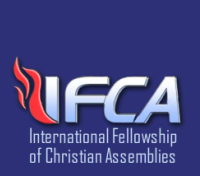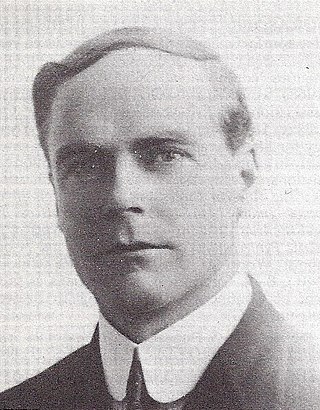Pentecostalism or classical Pentecostalism is a Protestant Charismatic Christian movement that emphasizes direct personal experience of God through baptism with the Holy Spirit. The term Pentecostal is derived from Pentecost, an event that commemorates the descent of the Holy Spirit upon the Apostles and other followers of Jesus Christ while they were in Jerusalem celebrating the Feast of Weeks, as described in the Acts of the Apostles.

The World Assemblies of God Fellowship (WAGF) is a global cooperative body of over 170 Pentecostal denominations that was established on August 15, 1989. WAGF was created to provide structure so that member denominations, which previously related to each other informally, could more easily cooperate on a global basis.

The International Fellowship of Christian Assemblies (IFCA), formerly known as the Christian Church of North America (CCNA), is a North American Pentecostal denomination with roots in the Italian-American community, but is now a multicultural denomination. Central offices are located in Transfer, Pennsylvania. Ministries of the church include Benevolence, Home Missions, FOCUS, Foreign Missions, Education, Lay Ministries, and Public Relations. A convention is held annually, and their official publication is Vista, a quarterly magazine. Membership in 2000 was about 7,200 in 96 churches in the United States. They also have thousands of affiliated congregations internationally in Africa, Australia, Canada, Europe, South America, and Asia with a strong presence in India with over 100,000 members in over 1,000 churches. Brother Rick George is the general overseer of the denomination.
The charismatic movement in Christianity is a movement within established or mainstream Christian denominations to adopt beliefs and practices of Charismatic Christianity, with an emphasis on baptism with the Holy Spirit, and the use of spiritual gifts (charismata). It has affected most denominations in the United States, and has spread widely across the world.

The Assembleias de Deus are a Pentecostal church in Brazil founded by Daniel Berg and Gunnar Vingren, who came to Brazil as missionaries from the Swedish Pentecostal movement. The Assembleias de Deus are related to the worldwide Pentecostal movement, and some groups are affiliated with the Assemblies of God.

The term Eastern Protestant Christianity encompasses a range of heterogeneous Protestant Christian denominations that developed outside of the Western world, from the latter half of the nineteenth century, and retain certain elements of Eastern Christianity. Some of these denominations came into existence when active Protestant churches adopted reformational variants of Eastern and Oriental Orthodox liturgy and worship, while others originated from Orthodox groups who were inspired by the teachings of Western Protestant missionaries and adopted Protestant beliefs and practices.

The Assemblies of God USA (AG), officially The General Council of the Assemblies of God, is a Pentecostal Christian denomination in the United States and the U.S. branch of the World Assemblies of God Fellowship, the world's largest Pentecostal body. The AG reported 2.9 million adherents in 2022. In 2011, it was the ninth largest Christian denomination and the second largest Pentecostal denomination in the United States. The Assemblies of God is a Finished Work denomination, and it holds to a conservative, evangelical and classical Arminian theology as expressed in the Statement of Fundamental Truths and position papers, which emphasize such core Pentecostal doctrines as the baptism in the Holy Spirit, speaking in tongues, divine healing and the Second Coming of Jesus Christ.
Protestants in India are a minority and a sub-section of Christians in India and also to a certain extent the Christians in Pakistan before the Partition of India, that adhere to some or all of the doctrines of Protestantism. Protestants in India are a small minority in a predominantly Hindu majority country, but form majorities in the north-eastern states of Meghalaya, Mizoram and Nagaland. They are also significant minorities in Punjab region, Konkan region, Bengal, Kerala and Tamil Nadu, with various communities in east coast and northern states. Protestants can trace their origins back to the Protestant Revolution of the 16th century. There are an estimated 20 million Protestants and 16 million Pentecostals in India.
Finished Work Pentecostalism is a major branch of Pentecostalism that holds that after conversion, the converted Christian progressively grows in grace. On the other hand, the other branch of Pentecostalism—Holiness Pentecostalism teaches the Wesleyan doctrine of entire sanctification as an instantaneous, definite second work of grace, which is a necessary prerequisite to receive the baptism in the Holy Spirit. Finished Work Pentecostals are generally known to have retained the doctrine of progressive sanctification from their earlier Reformed roots, while Holiness Pentecostals retained their doctrine of entire sanctification from their earlier Wesleyan roots. William Howard Durham is considered to be the founder of Finished Work Pentecostalism.

William Howard Durham was an early Pentecostal preacher and theologian, best known for advocating the Finished Work doctrine.
Pentecostalism is a renewal movement within Protestant Christianity that places special emphasis on a direct personal relationship with God and experience of God through the baptism with the Holy Spirit. For Christians, this event commemorates the descent of the Holy Spirit upon the followers of Jesus Christ, as described in the second chapter of the Book of Acts. Pentecostalism was established in Kerala, India at the start of the 20th century.
Pentecostalism began spreading in South Africa after William J. Seymour, of the Azusa Street mission, sent missionaries to convert and organize missions. By the 1990s, approximately 10% of the population of South Africa was Pentecostal. The largest denominations were the Apostolic Faith Mission, Assemblies of God, and the Full Gospel Church of God. Another 30% of the population was made up of mostly black Zionist and Apostolic churches, which comprise a majority of South Africa's African Instituted Churches(AICs). In a 2006 survey, 1 in 10 urban South Africans said they were Pentecostal, and 2 in 10 said they were charismatic. In total, renewalists comprised one-fourth of the South African urban population. A third of all protestants surveyed said that they were Pentecostal or charismatic, and one-third of all South African AIC members said they were charismatic.
The doctrines and practices of modern Pentecostalism placed a high priority on international evangelization. The movement spread to Africa soon after the 1906 Azusa Street Revival in Los Angeles.
Charismatic Christianity is a form of Christianity that emphasizes the work of the Holy Spirit and spiritual gifts as an everyday part of a believer's life. It has a global presence in the Christian community. Practitioners are often called charismatic Christians or renewalists. Although there is considerable overlap, charismatic Christianity is often categorized into three separate groups: Pentecostalism, the Charismatic movement, and the neo-charismatic movement.





